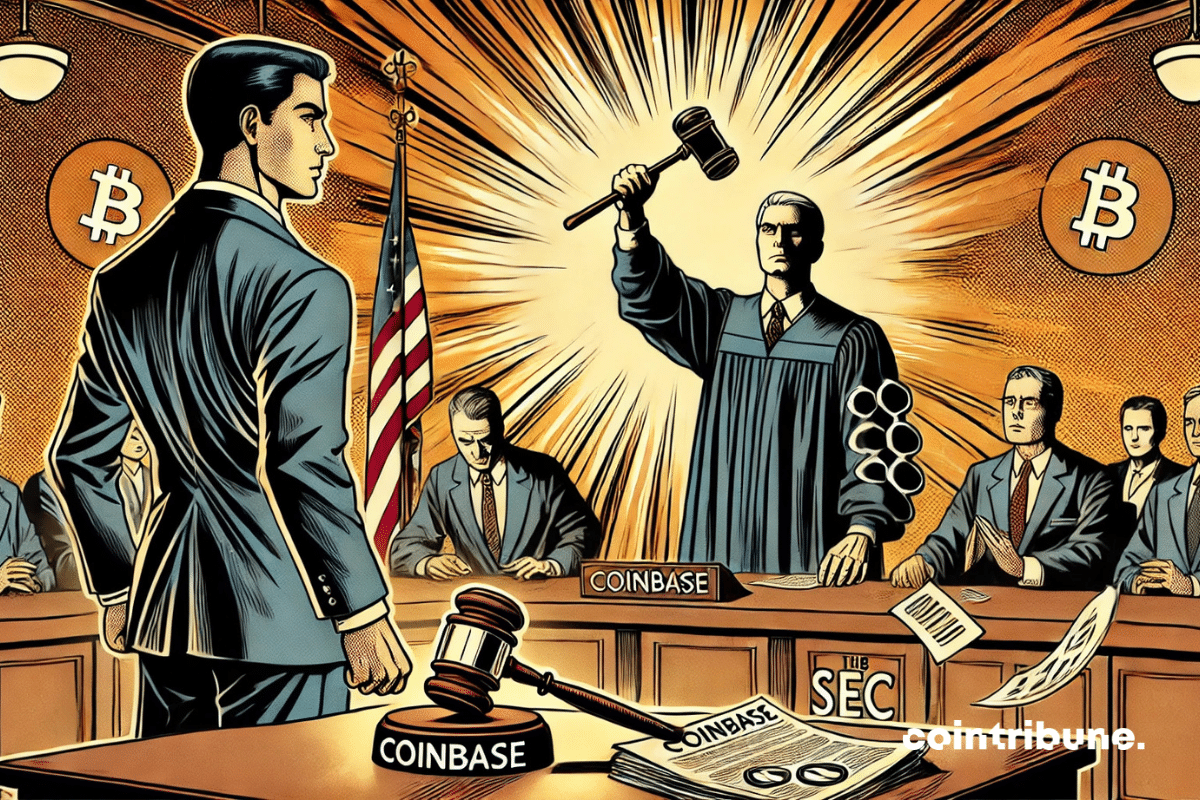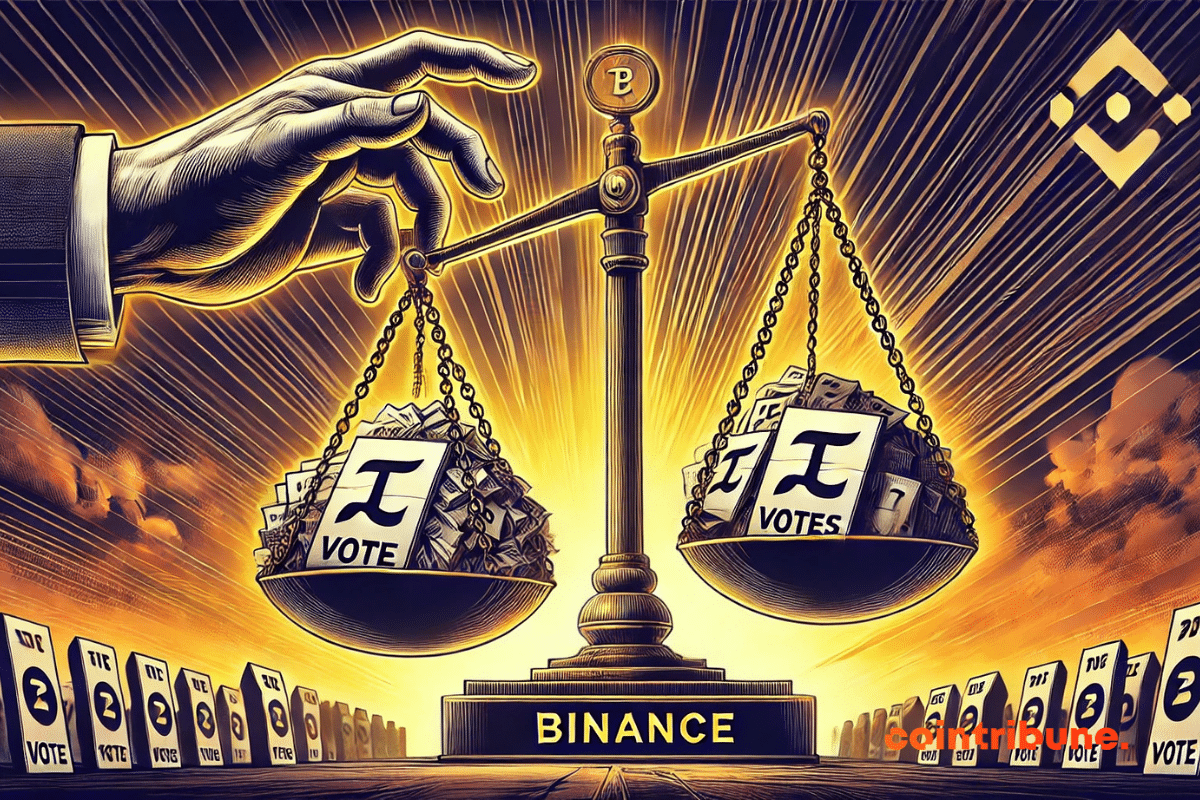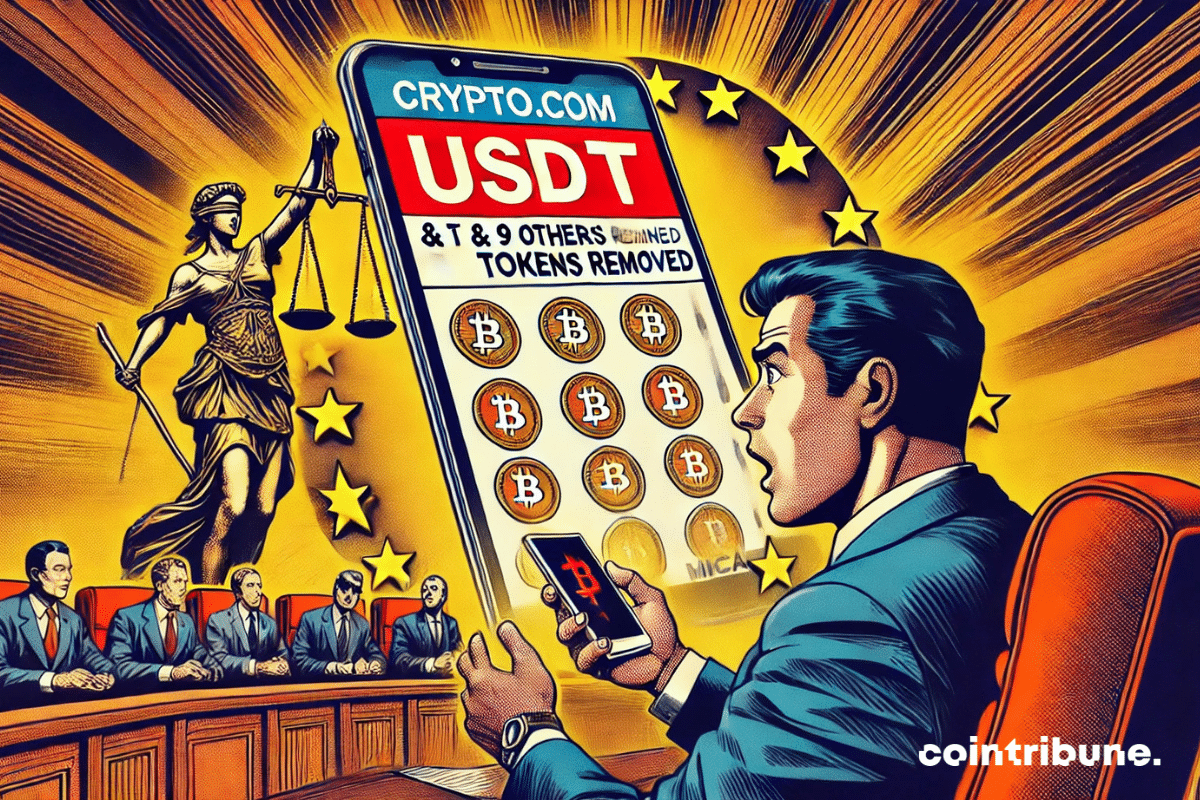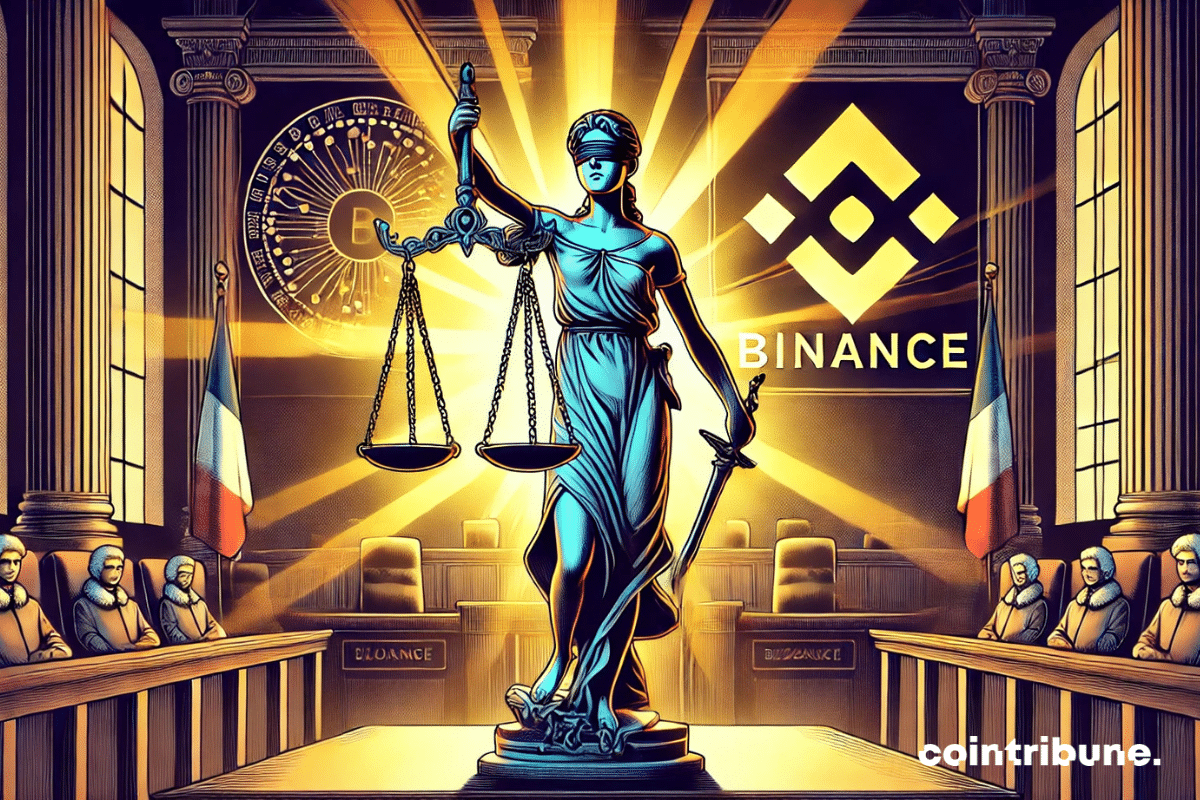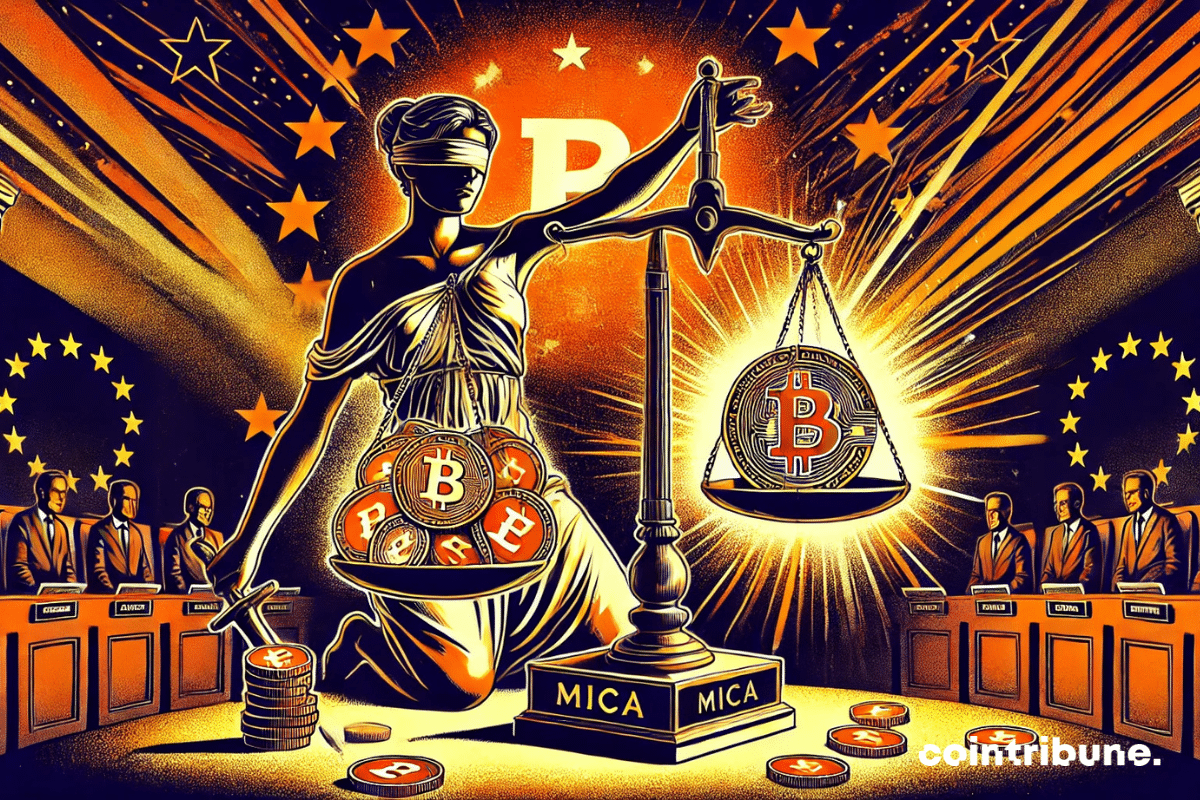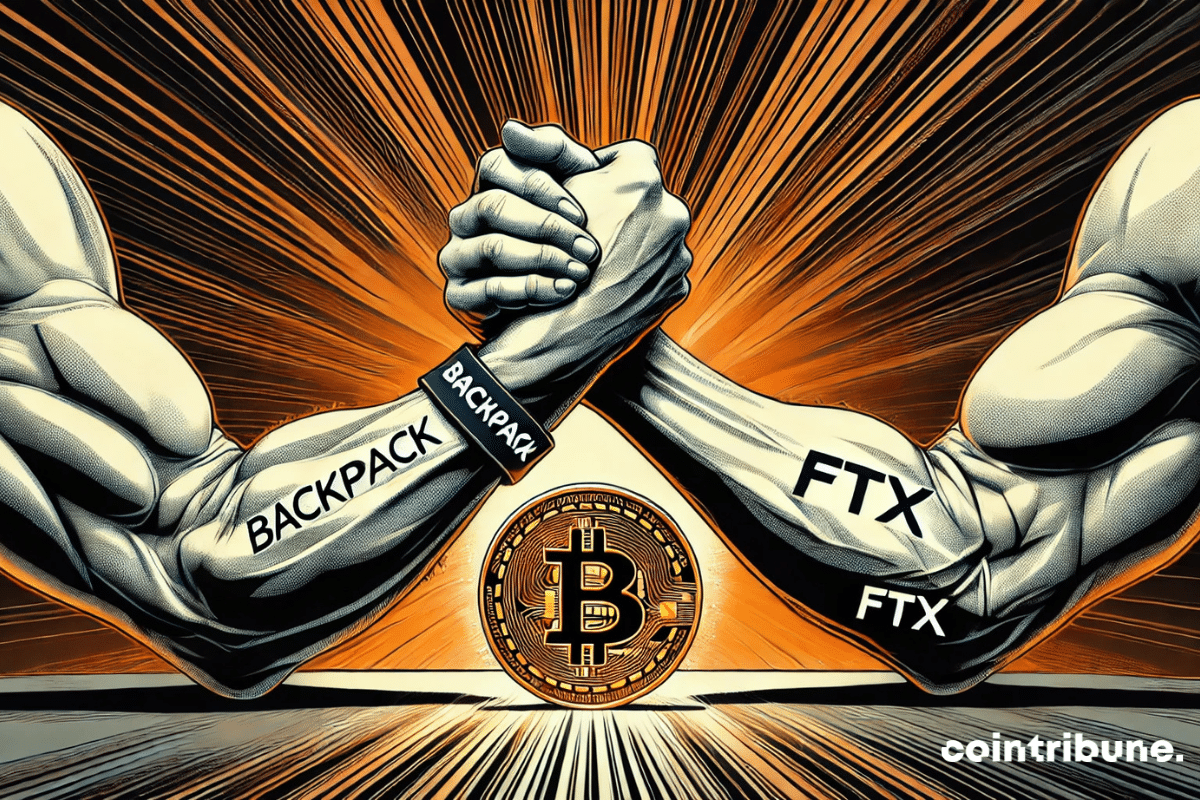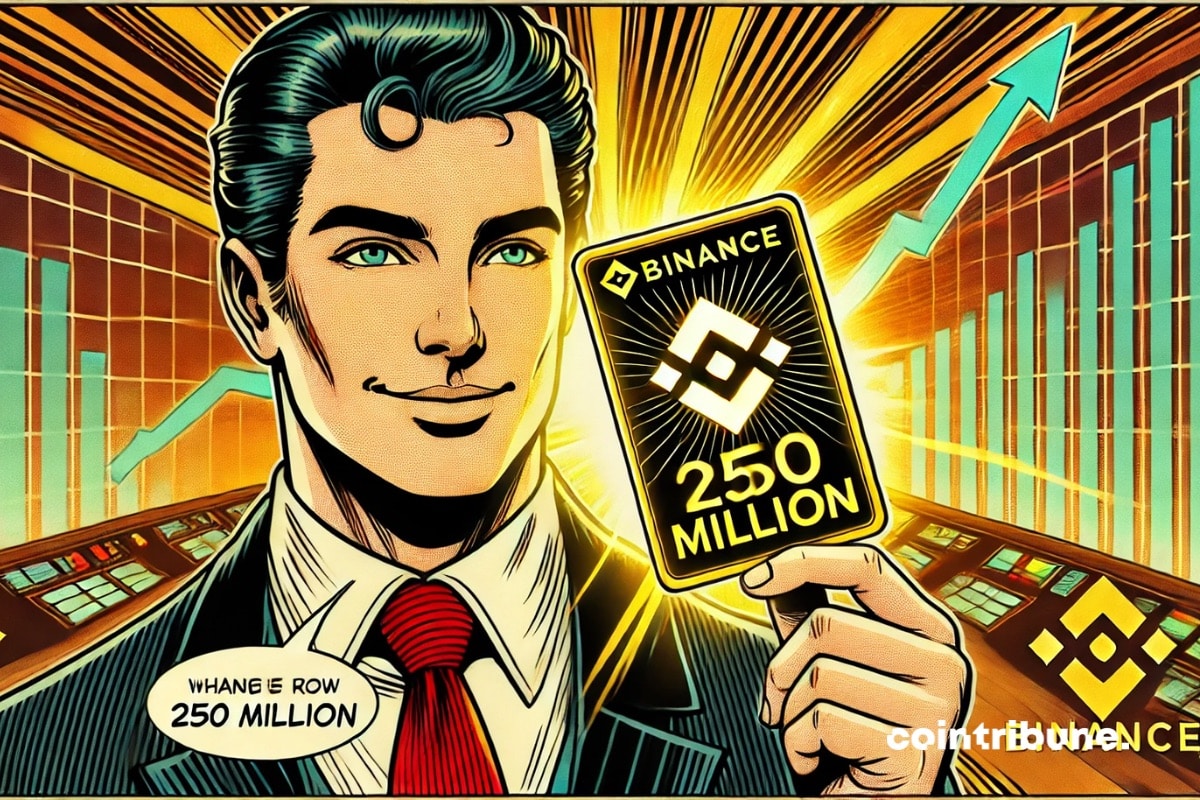"Binance, accused of pulling the strings of the grand crypto ball, defends itself. Meanwhile, Solana wavers, and investors search for a culprit. A twist of fate or mere panic?"
Exchange News
In a sector where every legal battle shapes the future of the market, Coinbase has just scored a decisive point. The exchange announced on LinkedIn this Thursday, February 27, 2025, that the legal proceedings against it had been dropped, a statement that resonates like a victory for the company, but…
The rise of cryptocurrencies goes beyond speculation and investment. Indeed, the actual use of these assets as a means of payment has reached an unprecedented level, transforming the perception of the sector. Binance Pay, the payment tool of the giant Binance, has just recorded $72.4 billion in transactions in 2024, a figure that reflects increasing adoption. This surge can be attributed in particular to the important role of stablecoins and a diversification of uses, in a context where traditional players struggle to keep pace. While crypto payments were still marginal a few years ago, Binance Pay is now establishing itself as a key player in this revolution.
The security of exchange platforms is a central issue in the crypto universe. A new attack has highlighted the increased vulnerability of the sector: Bybit, one of the most influential exchanges, suffered an exceptionally large hack, with an estimated loss of 1.5 billion dollars in Ethereum. The incident sheds light on the complexity of attacks targeting crypto infrastructures, as well as the challenges platforms face in protecting their users' funds. According to initial investigations, the attack is attributed to the Lazarus group, a cybercriminal organization affiliated with North Korea, already responsible for several massive hijackings in the sector. Bybit claims it can cover the losses, but the event raises questions about the resilience of exchanges in the face of growing threats.
A model employee? Rather an illusion. Behind her Excel files, Ho Kai Xin embezzled 5.7 million in crypto. The Singaporean justice system offers her a 10-year stay behind bars.
Cryptos have often been seen as a challenge for regulators, but rarely has a state struck as hard as this. Indeed, Nigeria, one of the most influential economies in Africa, has just filed a high-profile lawsuit against Binance, the largest crypto exchange platform in the world. The government is demanding $81.5 billion, a colossal amount that, according to Nigerian authorities, corresponds to unpaid taxes and major economic damages. This case marks a new escalation in the standoff between states and giants of the crypto sector. Amid allegations of tax fraud, employee detentions, and diplomatic pressures, Binance finds itself at the center of a dispute that far exceeds legal boundaries.
According to recent data, Ethereum reserves on exchanges fell to 18.95 million on February 18, a level not seen since July 2016. This decrease suggests a shift in investor attitude, as they now prefer to withdraw their assets from exchanges to hold them long-term in private wallets or staking. This could allow Ethereum to not only reach $3,000 but also exceed $3,500 in the coming days.
Valletta, February 18, 2025 - OKX, a global leader in blockchain technology, announces today that it is among the first global cryptocurrency exchanges authorized under MiCA to offer its services throughout Europe.
2 million believers shout "Pi Coin!", but Binance remains unyielding, consulting without promising. The cryptocurrency version of democracy: voting for decoration, deciding behind the scenes.
Legal battles between the SEC and crypto platforms have become commonplace, but a 60-day pause in the Binance case surprises observers. In a climate of rising tension around crypto regulation, this joint decision marks a strategic shift. At the origin of this development is the establishment of a Crypto Task Force within the SEC, an initiative that could reshape the authorities' approach to the industry. This moratorium presents two scenarios: a tightening of the rules or a willingness for more structured compromise with market participants.
The 2024 U.S. presidential election has rekindled interest in cryptocurrencies, particularly benefiting Coinbase. With an increase in trading volumes and an influx of institutional investors, the crypto platform sees its prospects evolving. However, the exchange faces certain challenges that could be fatal.
The tug-of-war between the crypto industry and American banking regulators is reaching a decisive turn. For several years, companies in the sector have denounced restrictions that limit their access to traditional banking services. This phenomenon of "debanking," perceived as an unjustified impediment, hampers their development and fuels a climate of uncertainty. In response to this situation, Coinbase is stepping up. In a letter addressed to the Federal Reserve (Fed), the Federal Deposit Insurance Corporation (FDIC), and the Office of the Comptroller of the Currency (OCC), the platform demands the removal of obstacles that prevent banks from collaborating with crypto players. Coinbase is asking for the cancellation of an OCC directive, as the platform believes it imposes an excessive approval process for new banking activities related to cryptos. The company considers this approach contrary to the law and calls on regulators to officially recognize the right of banks to offer custody and execution services for cryptos. This offensive comes as the debate gains political momentum. Under pressure from Republican lawmakers, Congress is holding two key hearings this week, in the Senate and the House of Representatives, to examine these controversial practices. The outcome of these discussions could redefine the regulatory framework of the crypto industry in the United States.
Court decisions regarding cryptocurrencies play a key role in the evolution of sector regulation. Indeed, when it comes to stolen funds, the issue becomes even more sensitive, as it pits the principle of confiscation against that of restitution to the victims. The case of the Bitfinex hack in 2016, one of the largest Bitcoin thefts in history, crystallizes these tensions. After the seizure of 94,643 BTC by US authorities, the courts are questioning the appropriateness of returning them to Bitfinex. Such a decision could create a major legal precedent, which would influence the future management of cryptocurrencies seized by the courts.
Europe is tightening its regulatory framework on stablecoins, and Kraken is forced to adapt. Indeed, the exchange announced the withdrawal of USDT and other stablecoins for users in the European Economic Area (EEA) before March 31, in response to the requirements of the MiCA regulation. This text imposes strict criteria on stablecoin issuers and limits their circulation in Europe. Such a decision illustrates a major shift for the European crypto market. As Kraken joins the list of platforms that comply with this regulation, investors must now choose between adapting to the new constraints or exploring other solutions. This transition could reduce the accessibility of the most popular stablecoins, but also redistribute the cards among market players.
Solana dominates 50% of DEX volume and surpasses Ethereum. Analysis of this rise to power that shakes up the crypto ecosystem.
The European Union is intensifying its control over non-compliant stablecoins in accordance with its new regulations. Crypto.com has just announced the removal of Tether (USDT) and nine other cryptocurrencies in Europe, a decision that marks a shift for the sector. Such an initiative directly responds to the requirements of the MiCA regulation (Markets in Crypto-Assets Regulation), which imposes strict oversight of stablecoins and associated services. Following Coinbase, which removed USDT in October 2024, Crypto.com is following suit and imposing a precise timeline on its users. As of January 31, 2025, the purchasing and depositing of these assets will be banned on its European platform. Starting March 31, the remaining funds will be automatically converted into MiCA-compliant stablecoins. This removal goes beyond mere compliance. It reshapes the stablecoin landscape in Europe, where exchanges must now adapt to the new rules or risk sanctions. In a rapidly changing market, this announcement underscores the regulators' desire to impose a strict framework and raises uncertainties about the future of decentralized stablecoins in the EU.
The global crypto industry, already under pressure from increasingly strict regulations, is once again shaken. Indeed, French authorities have just opened a judicial investigation targeting Binance, the world leader in crypto exchange platforms. This procedure, which is based on serious accusations such as money laundering, tax fraud, and drug trafficking, highlights the growing tensions between regulators and players in a sector still seeking clear legal frameworks. While Binance denies these allegations, this case could tarnish the platform's image, but also redefine the rules of the game for the entire industry.
OKX and Crypto.com obtain their MiCA licenses. They gain access to 400M customers in 30 European crypto markets. Details here!
Silk Road fades away, but Ulbricht intrigues. Kraken raises funds, while $47 million in BTC floats in limbo.
Valletta, January 23, 2024 - OKX, the global leader in blockchain technologies, announced today that it is the first Virtual Financial Asset (VFA) exchange to receive its MiCA pre-authorization. With this step, OKX is set to obtain the MiCA license soon, enabling it to offer its regulated crypto services to over 400 million Europeans from its Maltese headquarters.
The European Union is strengthening its role as a pioneer in financial regulation and is addressing a critical issue: the regulation of cryptocurrencies. With the arrival of the MiCA regulatory framework (Markets in Crypto-Assets Regulation), ESMA, the financial markets authority, is calling for swift action against stablecoins that do not comply with the new standards. This regulatory shift, aimed at protecting investors and ensuring transparency, heralds a major overhaul of the European crypto ecosystem and poses significant challenges for both issuers and trading platforms.
Cryptos have been evolving for years in a regulatory gray area, but the latest decision by the U.S. Supreme Court marks a decisive turning point for Binance. By rejecting the platform's request, the highest American court confirms that securities laws apply to transactions conducted on its servers, even if the company does not have a physical headquarters in the United States. This verdict paves the way for a class action lawsuit initiated by investors, who accuse Binance of selling unregistered cryptos. Already under pressure after a series of lawsuits and a multi-billion dollar settlement with the Department of Justice, the exchange and its former CEO, Changpeng Zhao, are facing intensified legal challenges. This setback raises a key question: Are the United States imposing their authority over the entire global crypto market?
MEXC, one of the leading crypto trading platforms, is launching its New Year Futures competition with a prize pool of 8 million USDT! This competition gives traders from around the world the opportunity to showcase their skills and kick off 2025 in style.
As the European Union prepares to implement the MiCA regulation, MEXC announces the continuation of USDT trading for European crypto users. The platform also offers attractive rewards and special events to support traders, thereby reinforcing its commitment to a smooth and secure trading experience.
The crypto company FTX accuses Backpack of acquiring FTX EU without judicial approval. We provide all the details in this article.
Hyperliquid, a decentralized perpetual trading platform, is facing growing concerns from its community regarding issues related to its validators. These worries have emerged following recent incidents that have called into question the security and reliability of its crypto infrastructure. In an effort to be transparent, Hyperliquid sought to clarify the situation, and here are their comments.
Binance, the largest cryptocurrency exchange platform in the world, recently published its year-end report for 2024, revealing impressive figures. Among the highlights, the company announced that it has surpassed 250 million registered users, thereby confirming its dominant position in the digital assets sector. Here are the innovations that made this possible...
In 2024, Coinhouse identified five promising cryptos: Bitcoin, Ethereum, Polygon, Avalanche, and Cosmos. As the year is coming to a close, it is time to evaluate their performances and to look ahead to 2025 to understand the future prospects of these digital assets.
MEXC, one of the leading crypto platforms, is kicking off the new year with an exceptional initiative for its European users. From January 2 to 16, 2025, the platform offers exclusive rewards focused on USDT deposits and trading. This event aims to provide a seamless user experience and generous benefits while strengthening MEXC's presence in the European market.
Backpack Exchange, a fully regulated cryptocurrency exchange platform on a global scale, announced today the acquisition of FTX EU, the former European branch of FTX holding a MiFID II license. Approved by the FTX bankruptcy court and the Cyprus Securities and Exchange Commission (CySEC), this acquisition represents a major milestone in Backpack's international expansion and demonstrates its commitment to providing secure and regulated trading solutions across Europe.

